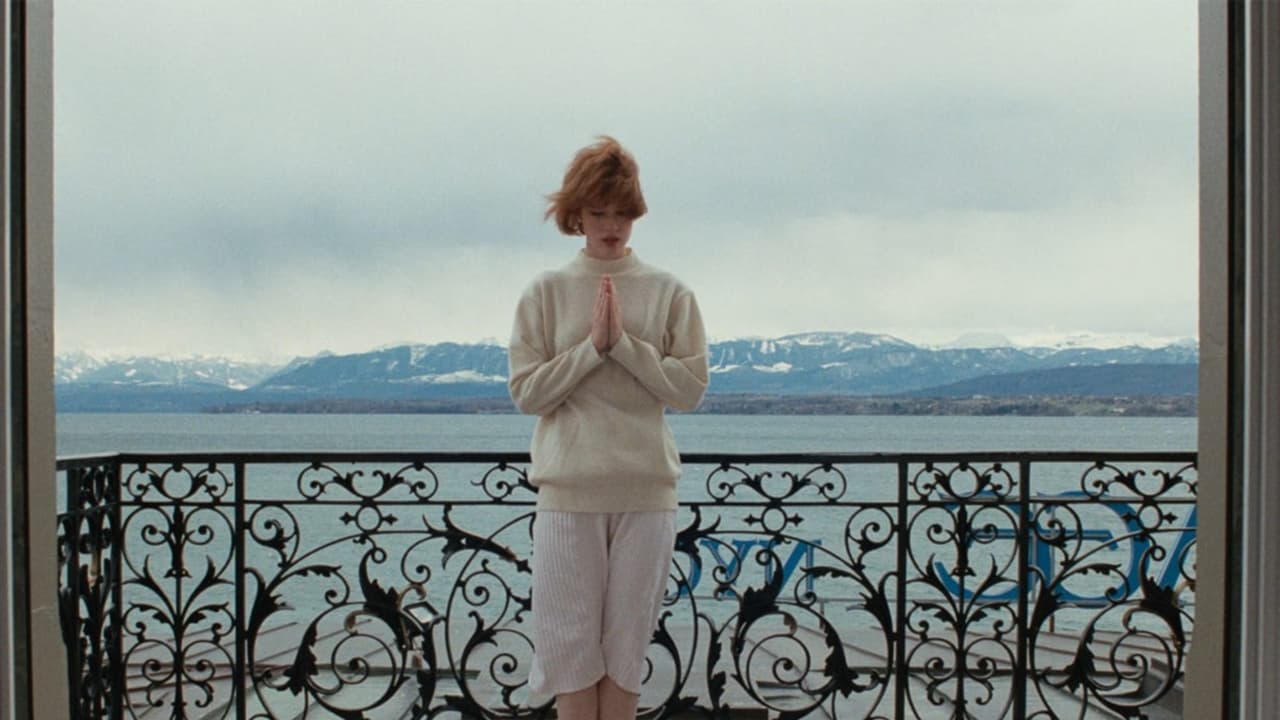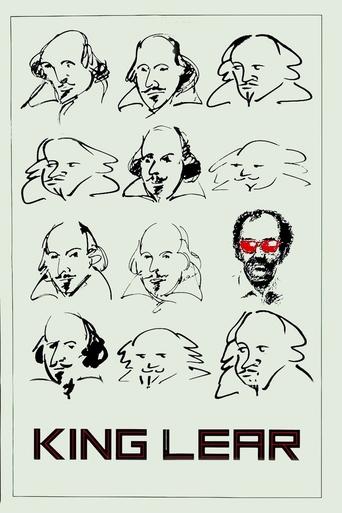

For Godard nothing seems to be as complicated as the simpler things. Therefore, to expect that his film "King Lear" was a passable film adaptation typical of Shakespeare's tragedy, it is at least the public's total lack of knowledge about the director or incoherence on the part of critics.Although some lines of Shakespeare's play are used in the film, only three characters (Lear, Cordelia, and Edgar) are, so to speak, "presented." King Lear is, without any confessionals, a difficult film, and so it is, if we consider Godard an insane director (in the positive sense), we have in this his visual experiment, the apex of human insanity when questioning art in a new world Of a major nuclear disaster (in reference to the Chernobyl episode).I view Godard's films as a laudable experimentation, which makes it unmistakably unique to each film. Godard is one of the rare, almost sole director who succeeds in affirming cinema through denial, thus more than presenting or affirming what cinema is, Godard discusses the various possibilities of being and making movies. And it does this by laughing and mocking the audience, but not in a gratuitous and unnecessary mockery instead, laughter is in front of our lack of care in assimilating the narratives of a film, seeking understanding and logic for everything, including in art, that historically sought Always breaking with the conventional, taking into account the very incoherence that is humanity and its disastrous way of living.
... View MoreIt's interesting that director Jean-Luc Godard flashes up the title card King Lear: Fear and Loathing throughout this film, as he himself appearing on the screen looks like Hunter S. Thompson...that is, if HST was French and on a mix of downers and trippers. Upon watching Godard's King Lear the first time, I understood this much - William Shakespeare Junior the Fifth (Peter Sellars) is in the process of writing something for the Cannon Group in a post-Chernobyl mind-f*ck parallel universe, where art and movies are faded memories and where Don Learo (Burgess Meredith) and his daughter Cordelia (Molly Ringwald) talk of separate philosophies and emotional struggles. Then, other than that, I was totally befuddled by the cinematic approach Godard was taking to the material. And yet there was something about the film that intrigued me, how there was such a height of intellectualism going on from Godard's head to the celluloid that it almost reverberated to ludicrous-ness, so I watched it again, giving it another shot.What King Lear does accomplish, at least up to a point, is that Godard's trying to get inside the mind of a writer (if not himself, which is more than likely the case, then of the spawn of Shakespeare), as he tosses about various ideas and nonsense to pound out a story and characters. The film also gives some interesting and true improvisation time for an actor like Meredith, and once in a while Godard's Professor Pluggy makes a point of fascination (i.e. the significance of images and emotions). What King Lear doesn't accomplish is some sense, even sense that intellectuals could be able to latch onto. Godard's basically making a film for himself, delving into themes and stylistic techniques that only he would understand, and since he limits what the audience can latch onto and comprehend of what philosophical goals and meanings he's derived from Shakespeare's classic, it's pretentious more often than not. The mis-en-scene is a bizarre contrast, as everything in the camera-work is clear and lovely, while the audio side of things almost works to annoy the viewer. The sounds of seagulls are practically inexplicable (unless he's trying to have the POV of the character every time a seagull chirps, which is over-the-line for me), the over-lapping of puzzling Shakespearian-esquire philosophy over some of the dialog is too much to concentrate on and digest, and the way Godard talks he might as well be speaking through a voice box.So, I think that King Lear is a bit of a mess, but for some reason I don't think it's a failure. It's the kind of mess that only a director like Godard could go for and make his own. A hack wouldn't even KNOW how to use such weird narrative devices like this man does. The film could even be of use to be dissected by someone scene-by-scene (although it could perplex someone enough to destroy the videotape their watching and curse Godard for all eternity), and as an experiment of treating Shakespeare it's not the worst in history. But I would not want to test myself with this again. Even Woody Allen (who bookends the end of the film with only minimal Shakespeare dialog and hands amusingly fiddling on the film) must've been scratching his head through most of this. So it's recommendable not so much as an enjoyable poetic musing like Band of Outsiders or even Pierrot Le Fou's oddball mixture. Reall, it's a challenge for a film buff that'll at best intrigue and get thinking and at worst be something to throw up in the air and shoot at with a bebe gun.
... View MoreGodard's listless crapfest is a big waste of time. I mean- it's fine if you want to pick one scene from a play and analyse it for an hour and a half; it's fine if you want to do this in an obscure semi-story way that only become the tiniest bit clear after having watched the whole thing.But when it's constructed as an endurance test, with the director holding the audience in contempt- I mean, why waste your time? (To the end of making your experience as unpleasant as possible, Godard shows up as a "professor", mumbling unintelligible profundities. And then throws piles of squealing seagulls and vari-speeded music onto the soundtrack. Thanks for reminding us that film is a constructed medium, professor!)There were a couple effective scenes, but they were immediately undermined by what followed. I did think a little about Lear, but more to keep myself occupied than from any theses the film presented.And a caveat to anyone considering seeing this because the IMDB credits list Woody Allen: don't bother; he's only in the flick for a few minutes at the end and barely says anything.To review: avoid.Rating: 3 out of 10 (very poor)
... View Morecertainly, if you're looking for entertainment and nothing else, then this isn't your movie. but if you want to have several insights concerning issues like authorship, patriarchy, literacy, the entertainment industry (hey, this is a Golan-Globus production!), the mafia, crime (anyone read Albert Fried's Rise and fall of the Jewish gangster in America?).....don't miss Godard's King Lear!
... View More